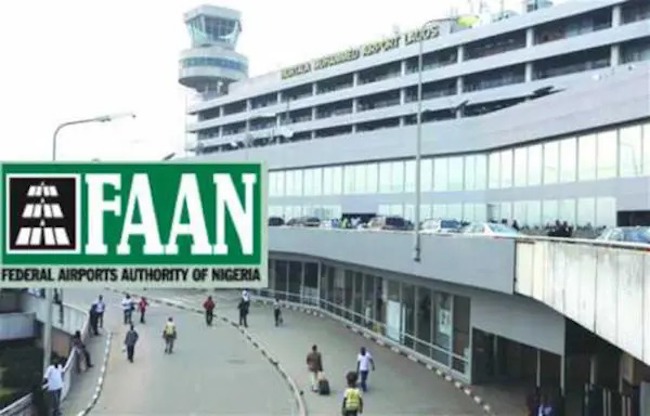Nigeria’s aviation sector is undergoing a significant transformation, particularly at the Murtala Muhammad International Airport’s cargo terminal in Lagos, with the aim of boosting the nation’s export capacity and diversifying its economy away from oil dependence. The Federal Airports Authority of Nigeria (FAAN) is spearheading this initiative, which involves a comprehensive digitalization and access control overhaul of the cargo terminal. This modernization effort is driven by the recognition of Nigeria’s underperformance in the global air cargo market, estimated to be worth $185 billion, and the urgent need to streamline processes and eliminate bottlenecks that have long hampered the country’s export potential.
At the heart of FAAN’s strategy is the implementation of a biometric access control system. This system will require all individuals entering the cargo terminal to be registered and undergo biometric capture, creating a centralized database for enhanced security and tracking. Access to the facility will be strictly regulated, with trucks only permitted entry upon presentation of verified cargo documents or airway bills. This measure is intended to eliminate unauthorized access and improve overall efficiency within the terminal. The initiative also addresses the persistent issue of perishable goods languishing in the terminal for extended periods, often leading to spoilage and significant financial losses for exporters.
The current state of Nigeria’s trade balance underscores the urgency of this reform. The country’s overwhelming reliance on imports, even for basic commodities, has created a scenario where import warehouses are overflowing while export activities remain sluggish. This imbalance has contributed to a significant outflow of foreign exchange, hindering economic growth. The FAAN official highlighted the stark contrast between the overflowing import warehouses and the underutilized export facilities, emphasizing the need to reverse this trend and unlock Nigeria’s vast export potential. He cited instances of imported goods like toothpicks, sand, and even meat, highlighting the absurdity of the situation and the untapped potential for local production and export of these commodities.
However, this initiative is not without its detractors. Representatives from freight forwarding associations have voiced skepticism about FAAN’s motives, suggesting that the move is primarily driven by financial interests rather than a genuine desire to improve trade facilitation. They argue that FAAN is exploiting an internal dispute within one of the associations operating within the cargo village as a pretext to evict all workers and potentially lease the land to other parties for financial gain. These critics claim that the cargo village, initially an uninhabitable area, was developed through significant investments by the freight forwarding community, and FAAN’s attempt to reclaim control is unjust and undermines their efforts.
The freight forwarders contend that the government had previously ceded the aviation terminal to their union due to its then-uninhabitable condition. They invested heavily in transforming the area into a functional cargo village, and now view FAAN’s actions as an attempt to capitalize on their investments. They accuse FAAN of leveraging a minor disagreement within one of the five associations operating in the village to justify a mass eviction, dismissing the agency’s claims of economic development as a mere smokescreen for financial gain. They believe that the true motive behind FAAN’s actions is to profit from the land by leasing it to other entities, thereby disregarding the substantial investments made by the freight forwarding community.
The ongoing transformation of the Lagos airport’s cargo terminal represents a critical juncture for Nigeria’s trade sector. While FAAN emphasizes the initiative’s potential to boost exports, streamline processes, and enhance revenue generation, concerns raised by freight forwarders underscore the need for transparency and equitable collaboration. The success of this initiative hinges on addressing these concerns and ensuring that the modernization efforts genuinely serve the interests of all stakeholders, paving the way for a more robust and globally competitive export sector in Nigeria. The conflicting narratives surrounding this project highlight the complexities of navigating public-private partnerships and the importance of balancing economic development goals with the rights and interests of existing stakeholders. Ultimately, the true impact of this transformation will depend on whether it fosters a more efficient and equitable trade environment or simply shifts control and profits from one group to another.


